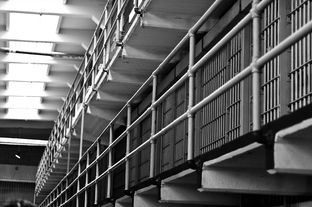Will Federal Moves Spur Texas Criminal Justice Change?

When U.S. Attorney General Eric Holder announced plans for a “fundamentally new approach” to the nation’s criminal justice system last week, reformers who have been working for years to the change the system in Texas said, “Welcome to the party.”
“States like Texas have been enacting reforms for a number of years, and people have come to realize you can be both tough and smart on crime,” said Marc Levin, director of the conservative Texas Public Policy Foundation’s Center for Effective Justice.
But reform advocates say there’s still more to do in Texas, and they’re hoping the federal action will spur further changes here.
“There is work to be done, most definitely, on sentencing reform in Texas,” Levin said.
Since 2007, Texas has led the way nationally in criminal justice reforms, implementing alternatives to incarceration, increasing probation and parole programs, and using specialized courts to help habitual criminals and drug addicts break the prison cycle. Texas’ prison population fell to about 150,800 this year from more than 156,000 in 2011.
On Aug. 12, Holder said that American prisons had become too populous and were occupied by those whose crimes were less serious. He announced, among other initiatives, that he would direct federal prosecutors to refrain from prosecuting each federal violation that crossed their desks. Noting that nearly half of federal prisoners were serving time for drug-related offenses, Holder ordered changes to mandatory minimum sentences for low-level, nonviolent drug offenders.
“By reserving the most severe penalties for serious, high-level or violent drug traffickers, we can better promote public safety, deterrence and rehabilitation – while making our expenditures smarter and more productive,” he said in the announcement.
Jorge Renaud, a policy analyst with the Texas Criminal Justice Coalition, said he hoped the federal effort to reduce sentences for drug crimes would spur state lawmakers to re-examine similar proposals here.
More than half of the 20,313 Texas prisoners serving time for drug-related crimes were convicted of possession, not delivery or other offenses, according to a February report by the coalition. Texas spends more than $500,000 per day to incarcerate those offenders, according to that report.
“We need to reserve prison for those we’re afraid of, not for those we’re just angry at,” Renaud said. “We are spending incredible amounts of money on prison.”
One of the measures Renaud and Levin said they hoped lawmakers would reconsider in the wake of federal reforms is House Bill 1417 by state Rep. Senfronia Thompson, D-Houston. That bill, filed in the 83rd legislative session, would have made possession of trace amounts of controlled substances a Class A misdemeanor instead of a state jail felony.
Levin said he hoped lawmakers would also consider updating the punishment for property crimes to reflect inflation since the law was written two decades ago. Under the current law, property crimes with a value of $50 or more are considered Class B misdemeanors with a penalty of up to six months in jail. But what was worth $50 when the law was originally written is worth more than $80 today. State Rep. James White, R-Hillister, filed a bill this year that would have adjusted the law to account for inflation, but the regular legislative session ended before the measure passed.
“I think that there are a lot of sentencing issues we hope the next Legislature will tackle,” Levin said. “And perhaps this will increase the momentum for that.”

